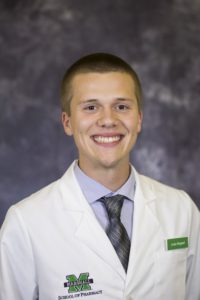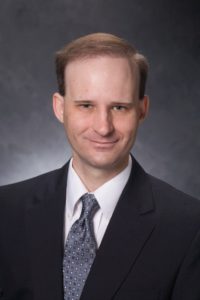
Jordan G. Sheppard, a third-year Marshall University School of Pharmacy student, along with school of pharmacy assistant professor Timothy E. Long, Ph.D., recently published research findings in the journal, Bioorganic & Medicinal Chemistry Letters, from an initial study showing promise for a new tool in the fight against multidrug-resistant superbugs.
Among the most dangerous superbugs are those that the Centers for Disease Control has identified as ESKAPE bacteria that cause infections like methicillin-resistant Staphylococcus aureus, commonly known as MRSA.

“Our research shows that certain manipulation of a widely-available, broad-spectrum antibiotic is effective against MRSA and other Gram-positive organisms,” Long said. “This finding is important because it identifies an already FDA-approved antibacterial that can be utilized in a different form to tackle one of the world’s most pressing medical issues.”
Long says this proof of concept study is foundational to future investigations looking at other existing drugs that could be revised to attack superbugs.
The work was conducted last summer by Long and Sheppard through the Marshall University School of Pharmacy’s Faculty Research Support Program.
“Antibiotic resistance is one of the most urgent issues in the medical field, and this research has given us a chance to develop new ideas for combating it,” Sheppard said. “Marshall University’s School of Pharmacy has many professors who are eager to work with students on their research projects that cover a wide variety of topics, both scientifically and clinically.”
According to the Pew Charitable Trusts, the last new major class of antibiotics was invented in 1984. Researchers like Sheppard and Long are hopeful that variations of those older antibiotics will be the answer to the superbug crisis.